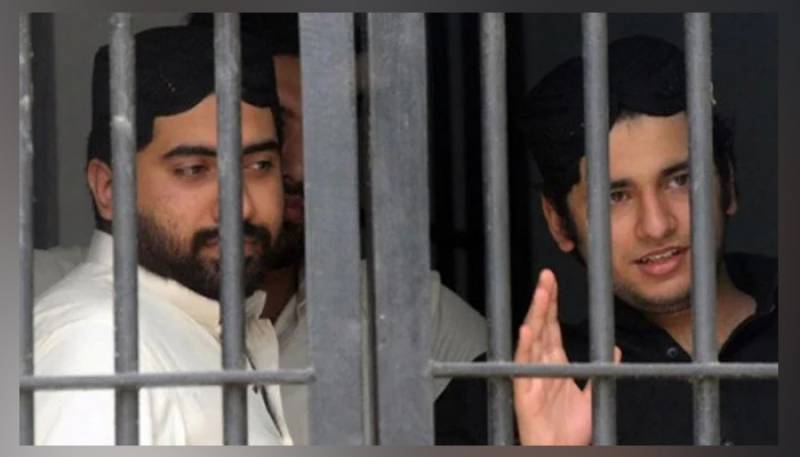Islamabad (Web Desk): The Supreme Court (SC) on Tuesday acquitted Shahrukh Jatoi and others in Shahzeb Khan murder case.
Three-judge bench, headed by Justice Ijazul Ahsan, heard the case.
In his arguments, Counsel for Shahrukh Jatoi said that the parties had already reached an agreement.
"The accused had no intention of spreading terror,” he also added, “the murder event was presented as a case of terrorism".
In August 2013, an Anti-Terrorism Court (ATC) had awarded the death penalty to Shahrukh Jatoi and his accomplice Siraj Ali Talpur for Shahzeb’s murder in 2012 following a petty dispute.
Siraj’s younger brother, Sajjad Ali Talpur, and domestic helper Ghulam Murtaza Lashari had been handed life sentences.
Later, Shahzeb’s parents had issued a formal pardon for the convicts, approved by the Sindh High Court (SHC).
Despite the pardon, however, the death penalty had been upheld because of the addition of terrorism charges to the case, up until the SHC dropped the charges and ordered a retrial in the case.
The SHC, while hearing appeals against the conviction, had later commuted the death sentences into life imprisonment.
On May 13, 2019, the SHC had commuted the death sentence of Shahrukh Jatoi and Siraj Talpur – prime accused in Shahzeb Khan’s murder case – to life imprisonment.
However, the court maintained life imprisonment award to Sajjad Talpur and Ghulam Murtaza.
On March 11, 2019, the SHC reserved its verdict on appeals filed by Shahrukh Jatoi, Siraj Talpur, Sajjad Talpur and Ghulam Murtaza Lashari challenging their sentences in Shahzeb Khan murder case.
The petitioners’ lawyer informed the court that Shahzeb Khan’s father had passed away and his widow and two daughters were residing abroad and did not wish to appear in the court. The lawyer further said that the court representatives could contact them via Skype or any other way to verify information about a compromise reached earlier.
The state lawyer had contended that the state had objected to the compromise between the aggrieved party and the suspects, as without a special public prosecutor a compromise cannot be offered.
The court stated in its remarks that the deceased’s heirs’ address details should be on record at the very least, and that if they were afraid of anyone or hiding from anyone then they should register a case over the matter.
On March 5, 2019, the SC had rejected Shahrukh Jatoi and others’ review petition in Shahzeb Khan murder case.
In Feb 2018, the top court had ordered the re-arrest of Jatoi, Siraj Talpur and others convicted in the murder case.
Jatoi was later shifted to Jinnah Hospital on February 10, after complaining of a back pain. The apex court had also ordered for the names of the accused to be placed on the Exit Control List (ECL).
The three-member bench, headed by Chief Justice Mian Saqib Nisar, had also ordered the SHC to constitute a bench to hear the appeal on merit and decide it in two months.
Shahrukh Jatoi and three other accused in the Shahzeb Khan murder case were freed on bail in December after Aurangzeb Khan, the victim’s father, filed an affidavit in support of the convicts’ bail application in the court.
The complainant Aurangzeb Khan appealed to the court to not only release on bail the four men convicted of his son’s murder, but also requested that the case filed against them be dropped altogether.
District and Sessions Judge (South) Imdad Hussain Khoso allowed the bail pleas of Shahrukh, Siraj Talpur, his younger brother Nawab Sajjad Ali Talpur and their house servant Ghulam Murtaza Lashari against a surety bond of Rs500,000 each.
The applicants’ lawyers argued that the high court had recently removed a relevant section of the Anti-Terrorism Act of 1997 from the case and sent it for retrial.
While submitting the affidavit, Shahzeb’s father DSP Aurangzeb Khan submitted that he and his family members had pardoned all the accused without any pressure, coercion or interest but “in the name of Allah” and waived the right of Qisas and Diyat.


